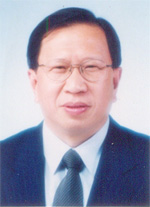About Us
Judo is originated and developed in Japan. Judo is not bujutsu (martial art) but a budo (martial way) and a sport which prevails all over the world nowadays.
Dr. Kano Jigoro (嘉納治五郎), the founder of Judo, was born in 1860 in Higashinada-ku , Kobe of Japan. When Dr. Kano attended the Tokyo Imperial University, he started to learn Tenjin Shinyo-ryu and later Kito-ryu of Jujutsu. After gaining solid knowledge of Jujutsu, he began to transform Jujutsu in a scientific way and named his system as Judo to make it different from Jujutsu and conform with the objectives of sport.
Dr. Kano established kodokan in 1882. He introduced the dans ranking and adopted a system of accreditation for judo athletes the year after. In 1990, Dr. Kano set up the rules and regulations for referees of competitions. He maintained contest (shiai or jiai with rendaku) is a vitally important aspect of judo. He urged the students of Judo to work hard and engage in more contests during trainings. Dr. Kano believed that through training in the techniques of judo, the practitioner could nurture their physical and mental strength, and gradually embodied the essence of the Way of Judo – good character, right etiquette and manners, self-control, the strive for profession and the betterment of the nation and society in general. That is, it was judo in the sense of
“Maximum Efficiency with Minimum Effort (Sei-ryoku Zen-you)” and “Mutual Welfare and Benefit (Ji-ta Kyou-ei)”.
Judo became a school curriculum in 1911 and since then the Government of Japan helped spread the sport across the country. Dr. Kano travelled to Europe to make known Judo outside Japan in the 1930s. Judo was officially announced as an Olympic event in 1964 Tokyo Olympic.
Geographically close to Japan, Judo was soon introduced to Hong Kong by local Japanese or overseas Chinese from Japan as a recreational activity. In 1940, a Judo course was attached to a bodybuilding & fitness centre (莫理素健身院) and the target students are foreigners. Then in 1960, Mr. Fung Ngai (馮毅), together with some expats, organized Judo Courses with YMCA (西青會).
In 1964, Mr. Koon Fook Cheung (管福祥) established the Far East Judo Club (遠東柔道會) and Mr. Stephen Tsai Teh Bei (蔡德培) set up the Judo Department in South China Athletes Club (南華會). The Kowloon branch of Caritas conducted Judo classes in 1965. In 1966, Mr. Takeo Iwami (岩見武夫) is the first Japanese to establish a Judo school in Hong Kong. Since then, Judo began to be developed systematically and substantially.
Judo eventually develops into a kind of sport and it is one of the reasons why Judo grows vigorously across the world. The exchange and betterment of techniques are essential in the development of the sport of Judo. Founded in 1970, the Judo Association of Hong Kong, China has subsequently put tremendous efforts in hosting a wide range of local and international tournaments in addition to offering trainings and competitions to junior and elite athletes as well as conducting coaches and referees courses for those who wish to contribute to Judo. The development of the sport of Judo is inspiring and fruitful. Hong Kong gains excellent achievements in all kinds of international competitions in recent years and hopefully, in the years to come.

Message from our President, PUI Kwan Kay, MH
柔道是一種首重禮儀,講求紀律的搏擊性體育項目。在柔道運動的演變過程中,由一種具有獨特民族色彩和民族 主義特點的武術,透過持續交流,慢慢地調整及改善, 逐漸與其他意識形態融和,發展成一種廣為接受的健康運動。 經過長時間的優化,柔道把其中具危險性、具傷害性、不利發展的因素從競賽與制度中刪除,同時建立具系統性的組 織和比賽條例,加上有效的運動員、教練和裁判的培訓基制,令柔道成為國際流行的體育運動。
香港的柔道已經發展了逾半個世紀,除了一直保持與世界一致的發展步伐,同時期望爭取和維持作為亞洲柔道社會 的重要成員。包括會長在內的世界柔道連盟及亞洲柔道聯盟的主要領導層近年多次訪港,對香港柔道發展和推廣給予 指導性意見,亦肯定了香港柔道運動的持續進步。
香港柔道人雖然未曾在國際最重要柔道賽事中踏上過最高臺階,但依然在眾多柔道活動中取得耀目榮譽,這一切均 是透過他們自我提升、不懈努力、積極進取,用辛勤的訓練,不求回報的汗水換取回來的。由於香港柔道發展的資源 並不充裕,運動員只維持在相對業餘的訓練環境中,加上世界柔道水平的不斷提升,香港新一代選手的成績就顯得更 為難能可貴。運動員的成長除了香港近年在組織和訓練規劃的強化外,還依賴他們對本身信念的追求、家庭對他們的 積極支援,以致地區柔道教練對他們的悉心指導。相信只要大家朝著共同方向奮鬥,柔道運動仍然可以繼續發放光芒。